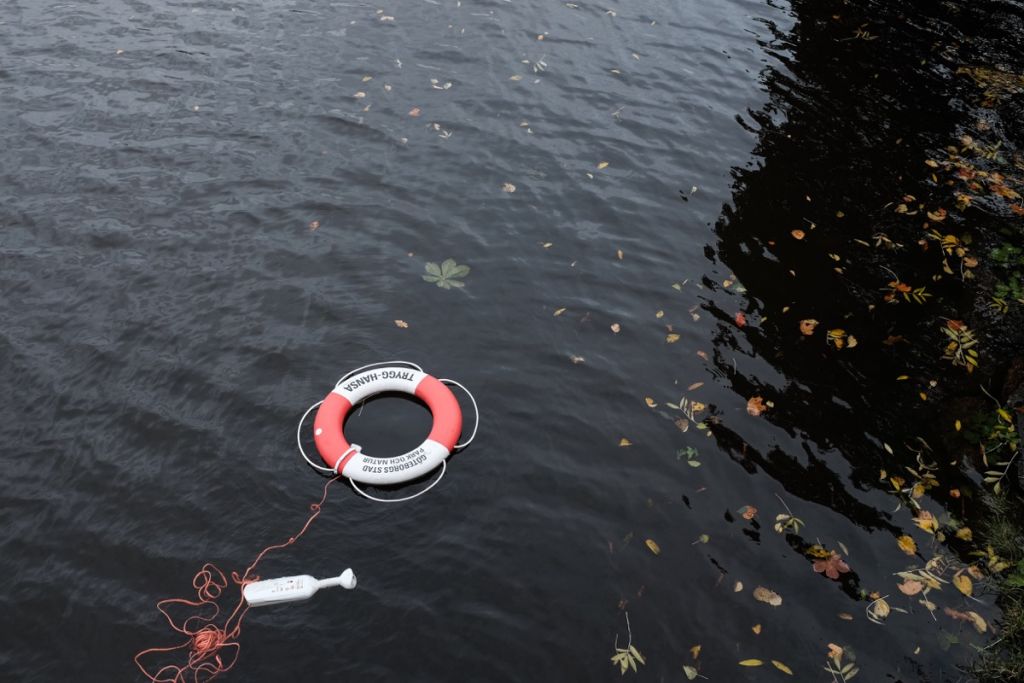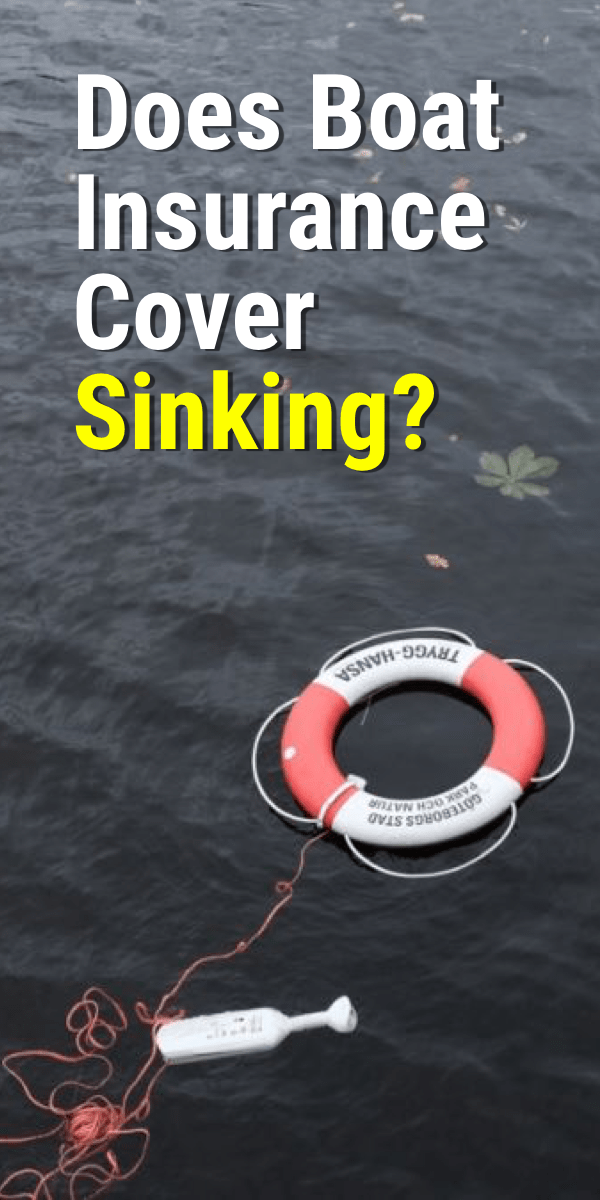Does Boat Insurance Cover Sinking?
Insuring your boat is daunting and expensive. There are several types of insurance and they always have conditions on you need to meet. But don't worry, with some careful research and responsible ownership you can protect your investment.
Does boat insurance cover sinking? In most cases, boat insurance does cover sinking - if you have hull insurance. If you have complied with all the conditions of your insurance policy and your boat sinks through covered reasons, you will be reimbursed for losing your boat less any deductibles in the policy.
But you need to know the terms of your policy and comply with them. It's all spelled out in documentation, but there are some key exclusions you should understand.

On this page:
What exclusions can keep my insurance from covering my loss?
The exact set of exclusions will vary from policy and insurer. But there are a few standard exclusions found in most policies.
- Geographic exclusions Most policies cover a limited cruising range. If your boat is in New England, your policy may read "Coastal and inland waters of the United States from Cape May, NJ through Maine." If you want to take your boat outside these waters without special coverage, they will not cover you if you sink.
- Named Storms Damage caused by tropical storms and hurricanes which are designated with a name may not be covered. This often has a geographic restriction and a calendar exclusion, or may have requirements for haul out. For example, many bluewater cruising policies for Caribbean cruisers will not cover named storm losses from June through November if a boat is above 11º North latitude (roughly around Trinidad).
- Calendar exclusions If you keep your boat somewhere with seasonal sailing or storms, specific limitations on when the boat may be in the water or out of the water may apply. They may link calendar exclusions to geography and storms. Many boats in parts of Florida are not covered by named storms in the summer months, for example.
- Acts of War and Terrorism Taking your boat into a war zone or high-risk area is usually not covered.
Note that some of the exclusions supersede others, and may mean your boat could sink and meet some conditions, but not all so you may still have coverage. An example might be a cruiser who takes his boat to Trinidad during hurricane season as required, but a Named Storm makes an unprecedented strike on Trinidad and sinks the boat anyway. Here, the insurance should cover the boat.
Other Common Exclusions
Some less common exclusions or reasons for denying a claim in the loss of a boat may include:
- Chartering Most private pleasure craft policies explicitly prohibit renting or chartering the boat, and will not cover a loss if it happens while being chartered.
- Crew number or skill requirements A skipper with less skill or a more ambitious cruising schedule may be required to have a minimum number of crew on board, or a certain amount of experience to be covered. Or it may require the owner to be on board if a licensed captain is not present. If a boat is lost and you do not meet these conditions, a claim may be denied.
- Failure to Comply with Survey Recommendations Before insurers underwrite a policy they usually require a survey. There may be repairs that the insurance company requires the boat owner to make before coverage will be put in force. If these items aren’t fixed and the claim may be denied if they can tie the loss to the ignored recommendations.
- Negligence Negligence can take several forms, from negligent operation of a boat to failing to maintain the vessel in a seaworthy fashion. If the insurance company can prove that a boat owner did not take basic steps to ensure a boat was safe they may not cover a loss.
- Intentional sinking Insurers do not pay out on fraud, or where a boat is intentionally abandoned or sunk without some present danger to the safety of the crew.
- Use of the boat in a crime Insurers will not cover a boat which is lost while a crime is committed.
So What Is Covered?
If your boat sinks, will you get a brand new boat? A check? Or something else?
The specifics - the exact amount of money that you will receive - will depend on the coverage you have purchased. When you purchase a policy, it is an actual value policy or an agreed value policy. Your policy will also have a deductible. And if you have a mortgage on your boat, they will pay the outstanding loan off out of the policy before they issue you a check.
Actual Value (sometimes called "Replacement Value")
An actual value policy often makes sense only on newer boats. The cash value of the policy is not specifically stated, but is the actual value of the boat less any depreciation from the age and condition of the boat. With a new boat, the value is well known as you can buy another one. But the older a boat gets the fuzzier that number can be. An actual value policy can save you some money, but is not recommended once a boat is no longer new.
Agreed Value
Most policies on boats more than a couple of years old are agreed value. A dollar amount close to the estimated market value of the used boat is written into the policy. It is not enough to purchase a brand new boat of the same size, but should be enough to allow the boat owner to replace his sunken vessel with a boat of comparable age, size, and quality.
The insurance company will provide a suggestion for the agreed value. You may negotiate this up (within reason - you can't insure a $20,000 boat for half a million dollars), or down to save money on premiums. Negotiating an agreed value less than your boat loan may save some money but it will not satisfy your bank!
In the end, if your boat is lost and covered you will receive the amount specified in your policy, less any deductibles, less any outstanding balance on loans.
What About My Tender? And my Sails?
Good question. A RIB with an outboard can represent a considerable investment, as can sails. Your policy will specifically outline any details or exceptions, but in most cases sails and tenders are covered if they are attached to or on the boat when it sinks.
They do not cover damage to sails under most policies as they consider this wear and tear and normal use. However, a policy will explicitly lay out circumstances where they are covered, such as the complete loss of the vessel or a fire.
Many policies will have a specific paragraph about any tenders, and your support boats should be listed individually. Deductibles for damage to them will differ from the primary vessel, and may be waived if the tender is lost with the ship.
What type of Insurance is available for boats?
Just like cars, boats can be insured for multiple types of loss.
- Liability Insurance cover the boat owner for damage by her boat to other boats, or injuries caused to others. It is the least expensive form of insurance because it provides no protection for your boat. It is only insurance to cover the harm you may do to others, if your boat sinks or is damaged you will get nothing. Many older boats only carry liability, and most marinas require liability coverage before your boat may be berthed there.
- Hull Insurance is the policy that will pay you for losing your vessel. Hull insurance may be difficult or impossible to get for smaller, older boats, or be prohibitively or nonsensically expensive.
What About Salvage and Recovery?
The word "Salvage" can mean two things. If a third party recovers your boat when it sinks they may claim "salvage rights,” which allows them to seek a substantial percentage of the boat's value as a claim to release the boat. Your policy should have wording to address salvage claims, and that is outside the scope of this post.
We're more interested in the second use - when your boat sinks at the dock, or in the channel outside your marina or somewhere shallow and accessible she may be recovered.
Depending on the condition of the boat, your insurance company may reserve the option to salvage her and pay for repairs instead of declaring the boat a total loss and paying out the policy. They must cover your loss, but they may not do it in the way you may want them to do it - by writing you a check.
Here you will get covered, but it will be like dealing with a flood or a fire in your home. Repairs will be made, and you may get your original vessel restored. This is more common with very expensive and valuable boats and not likely with a small sailboat where the recovery and repair costs will exceed the value of the boat.
Did you find the answer to your specific question?
👍 2 👎 2


Leave a comment